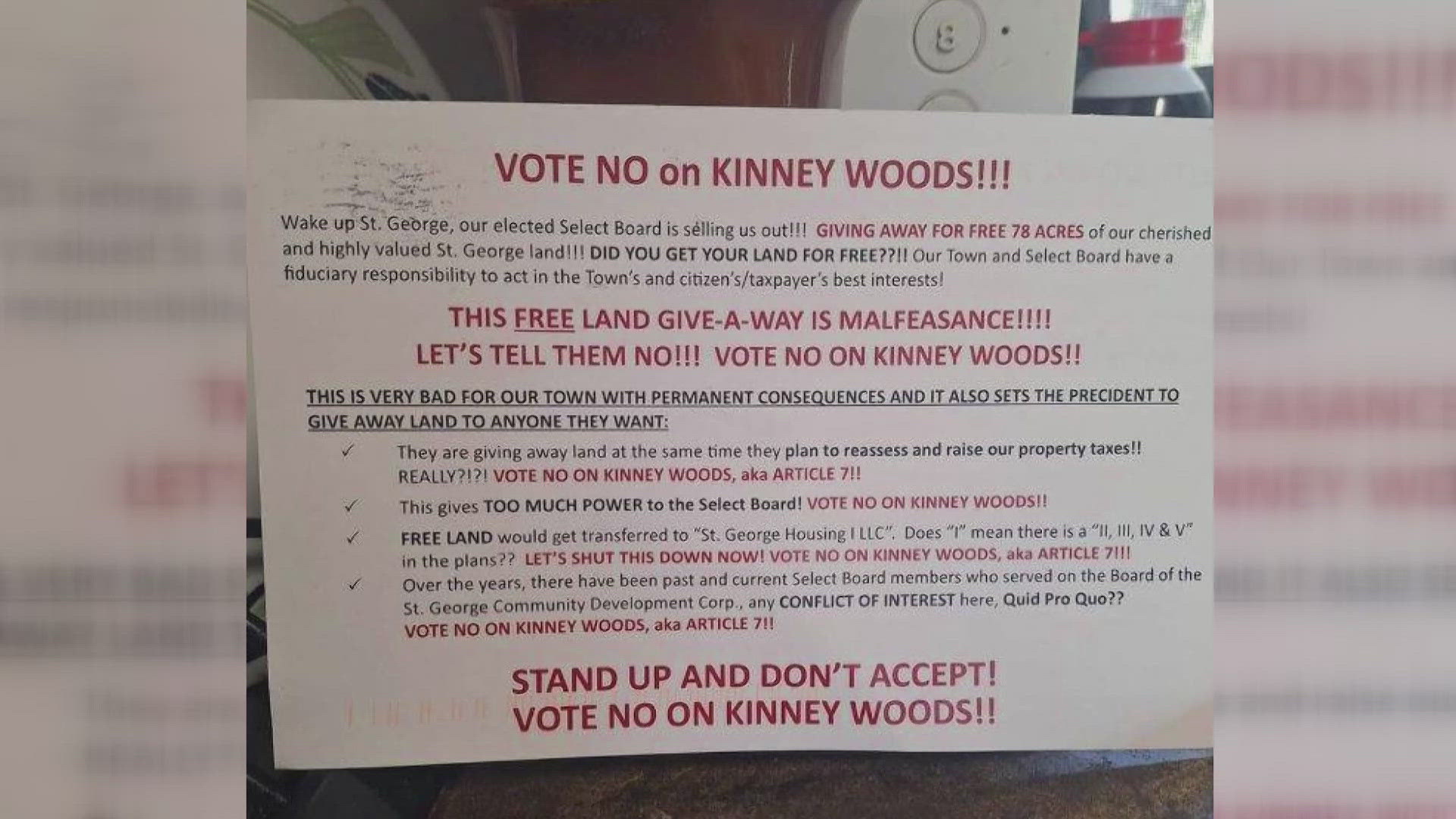ST GEORGE, Maine — The Maine Ethics Commission will decide Wednesday morning how to move forward in the investigation into an apparent campaign finance law violation shrouded in mystery.
Just days before a May referendum in the town of St. George asking voters whether to approve the transfer of land to build affordable housing, a postcard appeared throughout town.
The card called the proposal—which would have seen part of a 78-acre lot go to the nonprofit St. George Community Development Corporation—"malfeasance" and the Select Board "selling us out."
The message, however, was without any contact information tied to the sender. This may break a Maine law requiring anyone spending $500 or more in communications advocating for or against a ballot question to disclose their identity.
"It's wrong to try to influence voters and not have the guts to say who you are," Jane Conrad, chairwoman of the St. George Select Board, said Tuesday, calling the effort a transparency in information "a challenge we have in modern times."
The referendum in St. George failed by 23 votes.
"It's certainly possible that it influenced people," Conrad added.
In a memo to the Maine Ethics Commission ahead of Wednesday’s meeting, the Commission's executive director Jonathan Wayne said the decision to investigate the postcards comes "because of the probability that the mailing cost [is] over $500 and because the postcard explicitly urged a ‘no’ vote."
The investigation that Wayne’s letter describes has been thorough. Fourteen witnesses have been interviewed, from local elected leaders to print shop employees. Still, leads remain elusive.
"This is the first case within memory in which we could not find the responsible parties," Wayne wrote.
The Commission is taking up the issue after a letter from State Rep. Ann Matlack, a leading voice in municipal campaign finance reform in the Maine Legislature who happened to receive one of the postcards.
In 2023, Matlack co-sponsored a bill to extend to small communities some of the same elections reporting laws that are in place for cities and towns with populations of 15,000 or above.
"It's to provide more transparency in our communities," Matlack explained of her efforts.
Now, as an anonymous mail blast reaches her constituents, Matlack seeks to raise awareness for the municipal campaign finance laws that sometimes get ignored.
"This is the law, that people can’t just send things out willy-nilly, that they have to tell you who they are," Matlack said.
As the Commission prepares to meet, pressing questions remain over what can be done to actually enforce the law, seeing as no culprit has been found.
"The Commission staff is open to whatever next steps the Commission would like to suggest. If no other avenues seem suitable, the Commission has the option of terminating the investigation," Wayne wrote.

